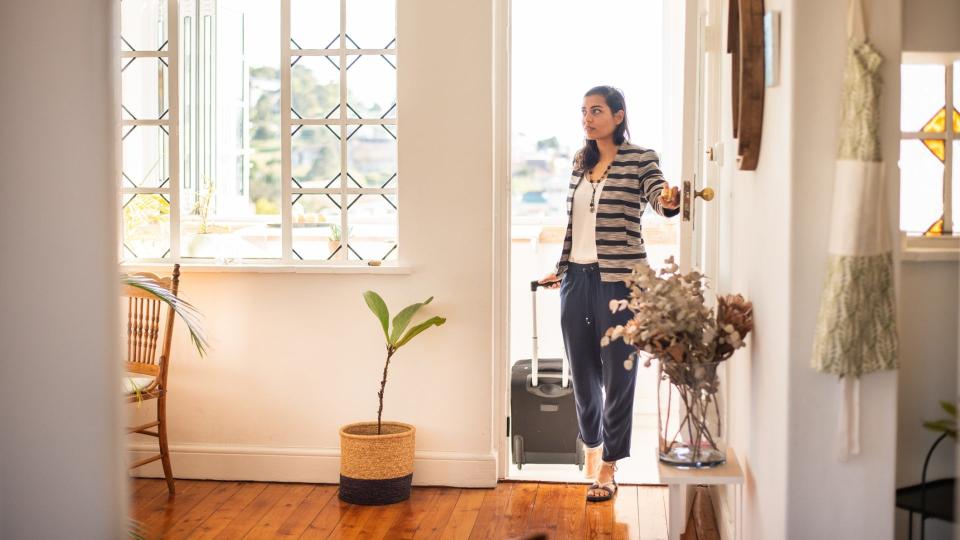Traveling? Here’s How Much Cash To Bring

While going on vacation can be fun and exhilarating, it also can be stressful. But the more planning you do ahead of time, the better off you will be.
The Future of Finances: Gen Z & How They Relate to Money
More: 5 Things You Must Do When Your Savings Reach $50,000
After you’ve booked your hotel and transportation, you need to decide how much money you need to have on hand. Determining the proper amount can be tricky. The truth is that it depends on your destination, what you plan to do and how much you can pay for in advance.
So, as you stuff that last pair of shoes into your suitcase and cross your fingers that it does not put you over the weight limit, think about what you will need to pay for while traveling. From food to tips, you need enough money (in the right currency) to get you through your trip and back home again.
Read on to find out how much cash to have with you on vacation.
Where Are You Going?
Deciding where to go and what to pack is stressful enough, let alone trying to determine how much money you need to bring.
The general consensus is that you should have $50 to $100 in cash per day for each traveler. However, this amount could vary considerably depending on where you are vacationing. Some destinations are more cash-friendly than others. Researching where you are headed can help you make adjustments to how much money to withdraw before you go.
Are you headed to a country where tipping on most things is customary? Are you headed to the woods for a retreat? Where you are can significantly impact how much money you will want to bring with you.
International travelers have a little more leg work to do since, in addition to calculating how much they will need, they must also exchange the cash for local currency. Pro tip: If it is a remote getaway, consider swapping the money at the airport in case you cannot do it in the area where you are staying.
Take Our Poll: What’s the First Thing You Would Do If You Won a Big Lottery Jackpot?
What Will You Be Doing?
The amount of money you should bring also may change based on what you will be doing. If you are headed to a secluded cabin to unplug and unwind, you may not need as much cash. On the other hand, if you are jetting off to a resort where you will sip margaritas while someone scrubs your feet, you may want to have a little extra money for tips.
Take into account what you were able to book in advance. If you are planning excursions each day, did you already pay for them, or will you be purchasing them upon arrival? If buying the day of, does the company accept credit cards? The worst feeling in the world is realizing that a business takes only cash and there isn’t an ATM in sight.
How Much Is Too Much?
Traveler, beware: Having too much cash with you can be just as frustrating as having too little. Carrying wads of money can make you a target for foul play. In most cases, you should not need over $200 per day with you.
If you do end up with a large sum of cash on you, make sure to split it up between your bags. By dividing your money, you can ensure that a lost or stolen piece of luggage doesn’t devastate you financially.
When pulling out your money, it is a good idea to get a variety of denominations. Having all $100s may make you feel like a king initially, but you might look like a fool when you try to buy a $2 street taco from a cash-only vendor.
What To Factor In?
Before you head off for your next getaway, crunch the numbers. Calculate the fees that your credit card will be charging if you are going abroad. Consider whether you will even be able to use your credit card. American Express customers are often saddened to find out that smaller businesses accept only Visa or Mastercard.
Speaking of credit cards, think about the benefits of paying with plastic. Are you losing out on valuable rewards by paying with cash? Weigh the pros and cons of each form of payment. Then, figure out exchange rates if you are headed to a foreign country and decide whether it is more advantageous to exchange money at the destination or to do it ahead of time. For travelers staying domestic, is cash readily accepted, or has everything moved to contactless payment?
The more you know about where you are staying, the more bulletproof you can make your budget.
More From GOBankingRates
This article originally appeared on GOBankingRates.com: Traveling? Here’s How Much Cash To Bring
